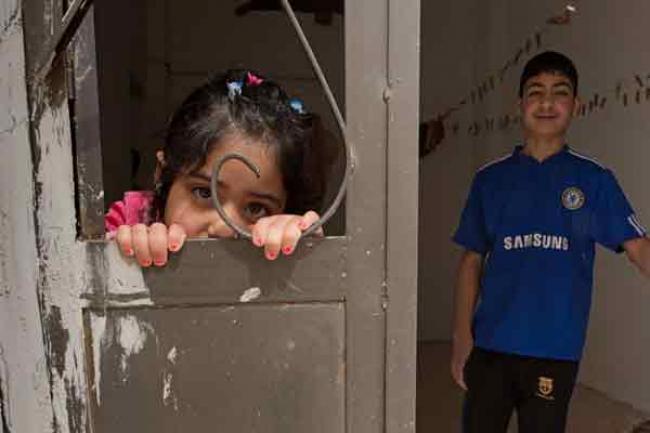Just Earth News 06 Jul 2016, 06:42 pm Print

UNICEF/Lucy Lyon
The mid-year report of the 2016 Regional Refugee and Resilience Plan, released by the Office of the UN High Commissioner for Refugees (UNHCR) and more than 200 international and national actors, examines progress this year in helping refugees and host communities in Turkey, Jordan, Iraq, Lebanon and Egypt.
With the Syria conflict entering its sixth year, host governments and communities continue to bear a heavy political, economic, social and security burden. Public institutions are under extreme pressure to deliver basic services to an increasingly large number of vulnerable people, testing the limits of existing infrastructure.
The report finds that with the generous support of donors, partners in the Plan have in 2016 delivered cash assistance to 102,853 households, food to 2,035,767 individuals, 1,090,795 primary health care consultations, shelter assistance to 25,148 households and other forms of emergency assistance to refugees and host populations. Support was provided to 5,603 people to find employment.
A key aim of the Plan is to invest in national services and systems in the host countries, which are under increased strain, and partners report that almost 200 education and health facilities were supported.
There was also promising news in the livelihoods sector, with work permits issued by Jordan to Syrians and a new regulation allowing Syrian refugee access to employment in Turkey. These positive initiatives, supported at February’s London Conference on Syria, need to be matched by the international community with continuing generous funding and responsibility sharing.
Refugees living under the poverty line
Despite this progress, the report warns of growing poverty. It says that in Lebanon, the average debt held by refugee households has increased over the first quarter of 2016 and the number of people living below the poverty line has risen to 70 per cent compared to 50 per cent in 2014.
In Jordan, 90 per cent of registered Syrian refugees in urban areas are below the national poverty line, while over 67 per cent of families are living in debt. In Egypt, some 62,000 refugees are living in poverty.
The report notes that 30 per cent or $1.38 million, of the $4.55 billion sought by UN agencies, inter-governmental organizations and non-governmental organizations (NGOs) under the Plan, had been received as of 31 May.
- Pakistan: Police recover two bullet-ridden bodies from Balochistan
- IDF strikes Hezbollah targets in Lebanon after projectile fire toward Northern Israel; 31 killed
- Pakistan: Armed gunmen kidnap 14 workers during coordinated raids in Balochistan
- ISIS-inspired plot foiled in UK: Two men get life sentences for targeting Jewish community
- India rejects allegations, urges Pakistan to tackle its ‘home-grown ills’





-1763561110.jpg)
